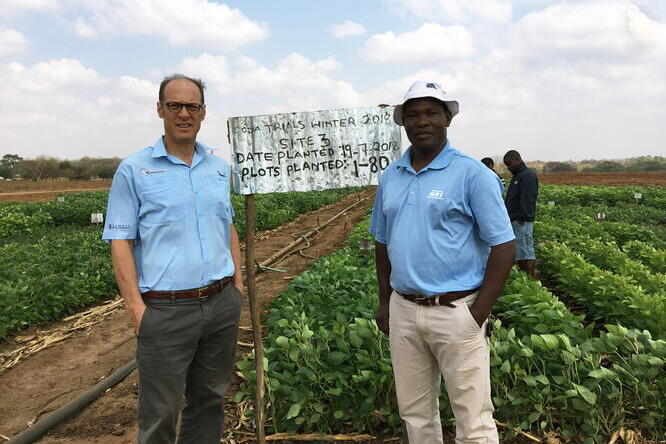$1M gift to keep Soybean Innovation Lab operational after USAID closure

In February, the USAID-funded Feed the Future Soybean Innovation Lab at the University of Illinois Urbana-Champaign was told to stop work, bringing an abrupt end to 12 years of progress toward developing a global soybean value chain supporting Sub-Saharan Africa, Asia, Latin America, and Australia. SIL director Pete Goldsmith cobbled together funding from the university to keep the lab afloat until April 15, which was to be its last day.
At the eleventh hour, Founders Pledge, a global nonprofit empowering entrepreneurs to do the most good possible with their charitable giving, announced a $1.02 million gift from an anonymous donor to fund the lab and core staff for another year. While durable federal investments are necessary to support the previous scale of SIL’s work and that of the university as a whole, the reprieve will allow SIL to complete some of its most critical work and give Goldsmith time to seek stable funding into the future.
“We will use the gift to restart our efforts with our partners and clients bringing soybean to the Lower Shire Valley of southern Malawi — diversifying the Lower Shire economy and leveraging recent World Bank irrigation investments,” said Goldsmith, emeritus professor in the Department of Agricultural and Consumer Economics in the College of Agricultural, Consumer and Environmental Sciences at Illinois.
SIL and local partners had only just begun developing the soybean industry in southern Malawi, where a hotter, low-elevation environment presents unique challenges.
Bruce Carruthers, who consults for Agricane in southern Malawi, said, “SIL’s efforts were strategically positioned to expedite the registration of new varieties for both rainy-season and dry-season production, an advancement that would mark a significant milestone in Malawian agriculture. The cessation of SIL’s involvement would have resulted in a slowdown of variety development and release, ultimately delaying the introduction of improved genetic material into the agricultural sector.”
Goldsmith points out that although SIL’s work has direct benefits for African farmers and agribusinesses, building the African soybean value chain also represents a major boon for the U.S. and global economies.
“Africa is the last frontier for soybean. It’s one of the fastest-growing areas and has huge potential. But someone has to go in and de-risk commercial interests. That's what SIL does,” Goldsmith said. “We go in and de-risk, build the market, and reduce uncertainty so that farmers in trade can follow on. And it's not just farmers, it's traders, it's processors. We've been very effective at it. Without us, there's no plan B.”
Continued funding keeps African and world soybean markets moving in the right direction. Give now to support SIL’s work; visit the donation page, select “other” as your gift designation, and enter “336899 — Soybean Innovation Lab (SIL).”